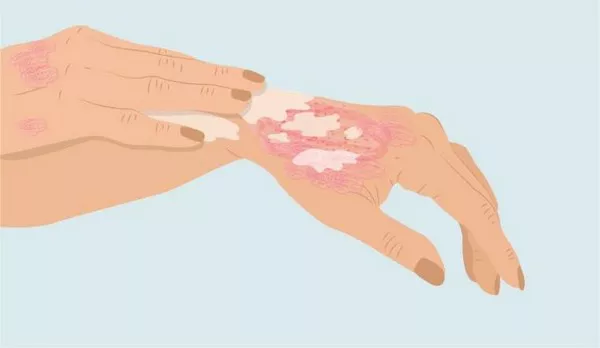Psoriasis is a chronic autoimmune condition that affects millions of people worldwide, characterized by the rapid buildup of skin cells that form scales and red patches, often causing itching and discomfort. One of the intriguing aspects of psoriasis is its varying degree of severity in different seasons. Many people with psoriasis report improvements in their symptoms during the summer months, but does psoriasis truly go away in the summer? This article delves into the relationship between psoriasis and seasonal changes, examining scientific evidence and patient experiences to answer this question comprehensively.
Understanding Psoriasis: A Brief Overview
Before exploring the seasonal effects on psoriasis, it is essential to understand the condition itself. Psoriasis is not just a skin disorder; it is an autoimmune disease where the immune system mistakenly attacks healthy skin cells, accelerating their life cycle. This leads to the rapid buildup of cells on the skin’s surface, forming scales and red patches that can be itchy, painful, and sometimes even debilitating.
The exact cause of psoriasis is still not fully understood, but it is believed to involve a combination of genetic and environmental factors. Common triggers include stress, infections, skin injuries, certain medications, and changes in weather. There are several types of psoriasis, with plaque psoriasis being the most common, accounting for about 80% of cases.
Seasonal Variations in Psoriasis Symptoms
Many psoriasis patients notice that their symptoms fluctuate with the seasons, often improving in the summer and worsening in the winter. This seasonal variation is not universal, but it is significant enough to warrant investigation.
Sunlight and Ultraviolet (UV) Radiation
One of the primary reasons for the improvement of psoriasis symptoms in the summer is increased exposure to sunlight, particularly ultraviolet (UV) radiation. UV light has immunosuppressive effects, which can help slow down the overactive immune response that characterizes psoriasis.
UVB therapy, a common treatment for psoriasis, mimics the beneficial effects of natural sunlight. It involves exposing the skin to a controlled amount of UVB light, which helps reduce inflammation and slow down the production of skin cells. During the summer, people naturally receive more UVB exposure, which can lead to a reduction in psoriasis symptoms.
Increased Humidity
Summer is generally more humid than winter, which can be beneficial for those with psoriasis. Dry skin can exacerbate psoriasis, leading to more itching, flaking, and discomfort. The higher humidity levels in the summer help keep the skin hydrated and less prone to irritation.
Outdoor Activities and Stress Reduction
Summer often brings opportunities for outdoor activities and vacations, which can reduce stress levels. Stress is a known trigger for psoriasis flare-ups, so anything that helps reduce stress can potentially improve symptoms. Spending time outdoors, engaging in physical activities, and enjoying the warmer weather can all contribute to a better quality of life and, consequently, fewer psoriasis symptoms.
SEE ALSO: How Stress Causes Psoriasis
Does Psoriasis Go Away in the Summer?
While many people with psoriasis experience a significant improvement in their symptoms during the summer, it is important to note that psoriasis does not “go away” entirely. Psoriasis is a chronic condition, meaning it persists over a long period, often for life. The improvement seen in summer is typically temporary, and symptoms may return or worsen once the favorable conditions of summer fade.
Case Studies and Patient Experiences
Numerous case studies and patient reports support the observation that psoriasis symptoms can improve in the summer. For example, a study published in the Journal of the American Academy of Dermatology found that 80% of psoriasis patients experienced some improvement in their symptoms during the summer months. Another study in the British Journal of Dermatology reported that natural sunlight exposure led to significant improvements in psoriasis for many patients.
Patients often report that their skin clears up almost entirely during the summer, only to have symptoms return in the fall or winter. This cyclical pattern underscores the chronic nature of psoriasis and highlights the influence of environmental factors on symptom severity.
Scientific Research on Psoriasis and Seasonal Changes
Scientific research has explored the impact of various environmental factors on psoriasis, providing insights into why symptoms might improve in the summer and worsen in the winter.
Role of Vitamin D
Vitamin D, often referred to as the “sunshine vitamin,” plays a crucial role in skin health. During the summer, increased sunlight exposure leads to higher levels of vitamin D production in the skin. Vitamin D has been shown to have anti-inflammatory properties, which can help reduce the severity of psoriasis.
Several studies have investigated the relationship between vitamin D and psoriasis. For instance, a study published in the Archives of Dermatological Research found that vitamin D deficiency was more common in patients with severe psoriasis. Supplementing with vitamin D or increasing sun exposure during the summer can help improve symptoms by addressing this deficiency.
Immune System Modulation
As an autoimmune disease, psoriasis involves an overactive immune response. UV radiation from sunlight has immunomodulatory effects, meaning it can alter the immune system’s activity. Specifically, UVB light can induce the production of regulatory T cells, which help control the immune response and reduce inflammation.
Research published in the Journal of Investigative Dermatology demonstrated that UVB therapy increased the number of regulatory T cells in psoriasis patients, leading to a reduction in symptoms. This mechanism is likely at play during the summer when natural UVB exposure is higher.
Limitations and Considerations
While the summer season offers several benefits for psoriasis patients, it is not a cure-all, and there are limitations and considerations to keep in mind.
Risk of Overexposure
While moderate sun exposure can be beneficial, overexposure to UV radiation can have adverse effects, including sunburn and an increased risk of skin cancer. Psoriasis patients should balance sun exposure with sun protection measures, such as using sunscreen and wearing protective clothing.
Individual Variability
Not all psoriasis patients experience improvement in the summer. Some may find that their symptoms do not change or even worsen due to factors like heat and sweating, which can irritate the skin. Individual responses to seasonal changes can vary widely, highlighting the need for personalized treatment approaches.
Long-term Management
Given that psoriasis is a chronic condition, long-term management strategies are essential. While summer can provide temporary relief, patients should continue following their prescribed treatment plans and maintaining healthy lifestyle habits year-round. This may include topical treatments, systemic medications, phototherapy, and lifestyle modifications such as a balanced diet and stress management.
Conclusion
Psoriasis is a complex and chronic condition influenced by a variety of factors, including seasonal changes. While many patients experience significant improvement in their symptoms during the summer due to increased sunlight, higher humidity, and reduced stress, psoriasis does not go away entirely. The condition is lifelong and requires ongoing management.
Understanding the relationship between psoriasis and seasonal changes can help patients optimize their treatment strategies and improve their quality of life. By leveraging the benefits of summer while taking appropriate precautions, psoriasis patients can enjoy better skin health and overall well-being. However, it is crucial to recognize the individual variability in responses and the need for personalized care plans that address the unique needs of each patient.
Related Topics:






















